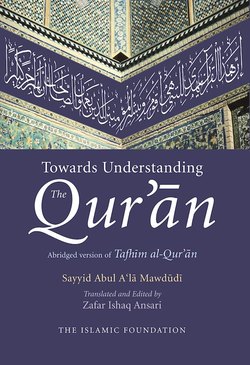Читать книгу Towards Understanding the Qur'an - Sayyid Abul A'la Mawdudi - Страница 28
На сайте Литреса книга снята с продажи.
ОглавлениеIntroduction
the various phenomena of the universe, relates anecdotes of bygone nations, criticizes the beliefs, morals and deeds of different peoples, elucidates supernatural truths and discusses many other things besides. All this the Qur’an does, not in order to provide instruction in physics, history, philosophy or any other particular branch of knowledge, but rather to remove the misconceptions people have about reality and to make that reality manifest to them.
It emphasizes that the various ways men follow, which are not in conformity with reality, are essentially false, and full of harmful consequences for mankind. It calls on men to shun all such ways and to follow instead the way which both conforms to reality and yields the best practical results. This is why the Qur’an mentions everything only to the extent and in the manner necessary for the purposes it seeks to serve. The Qur’an confines itself to essentials thereby omitting any irrelevant details. Thus, all its contents consistently revolve around this call.
Likewise, it is not possible fully to appreciate either the style of the Qur’an, the order underlying the arrangement of its verses or the diversity of the subjects treated in it, without fully understanding the manner in which it was revealed.
The Qur’an, as we have noted earlier, is not a book in the conventional sense of the term. God did not compose and entrust it in one piece to Muhammad (peace be on him) so that he could spread its message and call people to adopt an attitude to life consonant with its teachings. Nor is the Qur’an one of those books which discusses their subjects and main themes in the conventional manner. Its arrangement differs from that of ordinary books, and its style is correspondingly different. The nature of this Book is that God chose a man in Makkah to serve as His Messenger and asked him to preach His message, starting in his own city (Makkah) and with his own tribe (Quraysh). At this initial stage, instructions were confined to what was necessary at this particular juncture of the mission. Three themes in particular stand out:
1. Directives were given to the Prophet (peace be on him) on how he should prepare himself for his great mission and how he should begin working for the fulfilment of his task.
xxvii
